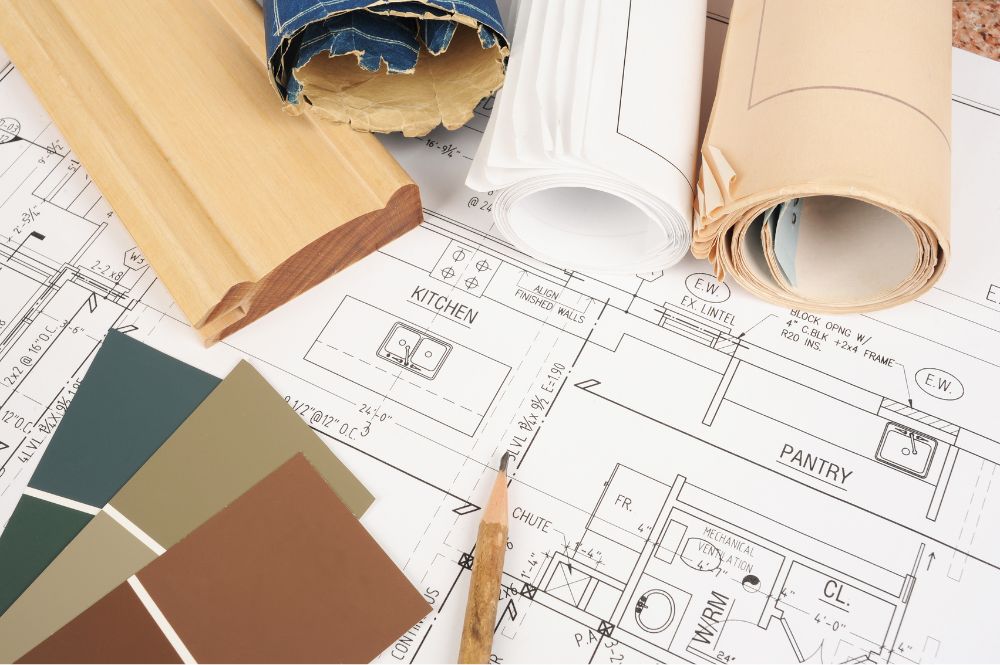
The Truth About Permits: What You Need Before Swinging a Hammer
(Don’t let paperwork ruin your renovation dreams.)
Picture this: You’re ready to tear down that outdated wall, upgrade your plumbing, or finally build that dream deck—but wait, do you need a permit? The answer might surprise you.
Permits exist for a reason—to ensure safety, uphold building codes, and protect homeowners from potential disasters. But knowing exactly when and why you need one can be confusing. Don’t worry, I’ve got you covered!
1. What’s a Permit, and Why Do You Need One?
A permit is official approval from your local municipality that ensures your renovation complies with safety codes and regulations. Skipping this step? Bad idea.
🚨 What happens if you ignore permits?
- ✔ You could face hefty fines
- ✔ Your project might have to be torn down
- ✔ Selling your home later might be a nightmare
🛠 Bottom Line: If it involves structural changes, plumbing, electrical work, or zoning laws, a permit is likely required.
2. Common Renovations That Require Permits
Not every little upgrade needs paperwork, but here’s where you’ll likely need approval:
✅ Major renovations requiring permits:
- ✔ Structural changes (knocking down walls, adding rooms)
- ✔ Electrical work (rewiring, installing new circuits)
- ✔ Plumbing modifications (new pipes, relocating fixtures)
- ✔ HVAC system upgrades (installing/replacing ductwork)
- ✔ Deck construction (size-dependent, check local rules)
- ✔ Fencing (height regulations may apply)
🚫 No permits needed (usually):
- ✔ Painting & minor cosmetic upgrades
- ✔ Flooring replacements
- ✔ Kitchen/bathroom cabinet swaps
- ✔ Light fixture replacements
📜 Tip: Even if a project seems small, check local requirements—rules vary by city.
3. How Do You Get a Permit?
It’s easier than you think!
🏠 Step-by-step process:
- 1️⃣ Visit your city or municipality website to review permit requirements.
- 2️⃣ Fill out an application with details about your project.
- 3️⃣ Pay a fee (cost depends on project size).
- 4️⃣ Wait for approval (could take a few days to weeks).
- 5️⃣ Schedule inspections (if required) during and after the project.
🔎 Where to start? Call your local building department or visit their website—many cities offer online permit applications now!
4. The Cost of Permits—What to Expect
Permit costs vary, but they’re a small price to pay for peace of mind.
💰 Common permit fees:
- ✔ Minor projects: $50 – $500
- ✔ Major renovations: $500 – $2,000+
- ✔ New construction: Several thousand dollars
🏡 Savings Tip: Some cities offer flat-rate permits for small projects, so always ask about options.
5. Contractor vs. DIY Permits: Who Handles What?
✔ Hiring a contractor? They should handle permits for you—always confirm before hiring.
✔ Going the DIY route? You’re responsible for applying on your own (but local offices can help guide you).
🚨 Red Flag: If a contractor asks you to pull permits instead of doing it themselves, that might mean they aren’t licensed—be careful!
6. Permit Inspections—What to Expect
Some projects require city inspections to ensure everything meets safety standards.
👷♂️ Common inspections:
- ✔ Electrical wiring checks
- ✔ Plumbing tests
- ✔ Structural integrity review
✅ Pro Tip: Keep permit documents handy in case inspectors need to reference them.
Final Thoughts
Permits may seem like a hassle, but they protect your investment and ensure your renovations are safe and up to code. Before swinging that hammer, take a few minutes to check local requirements—you’ll thank yourself later.
